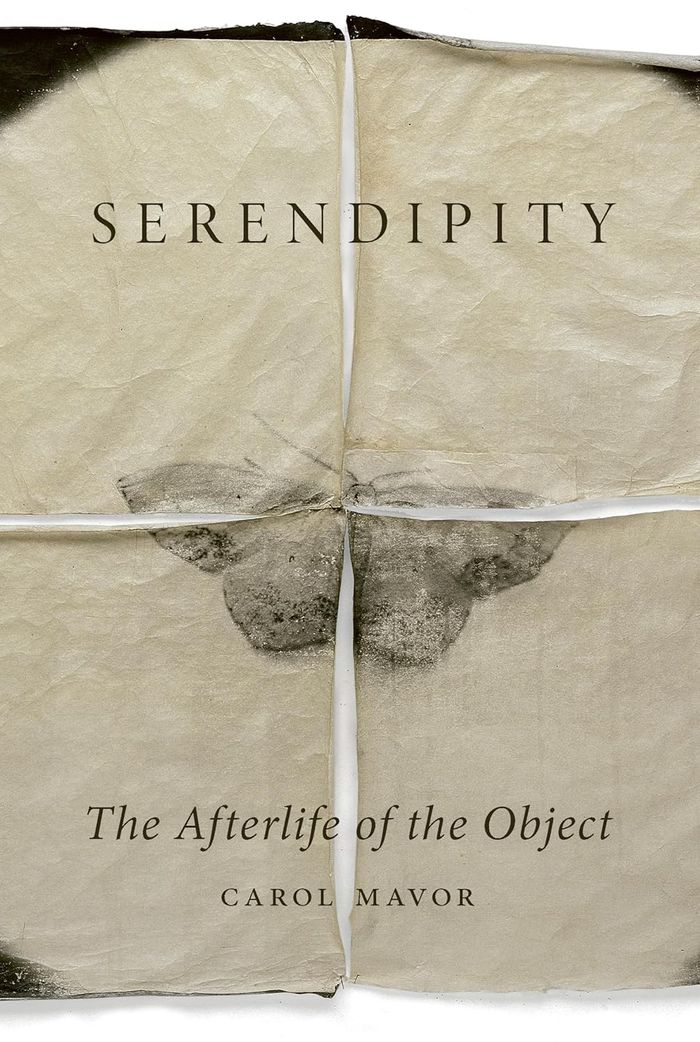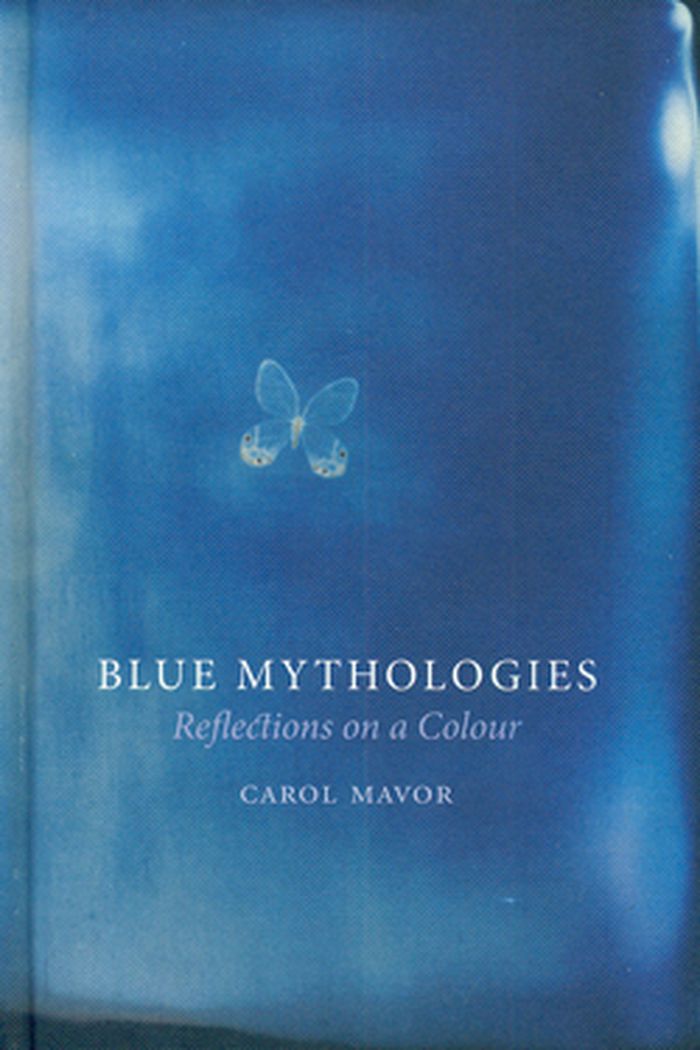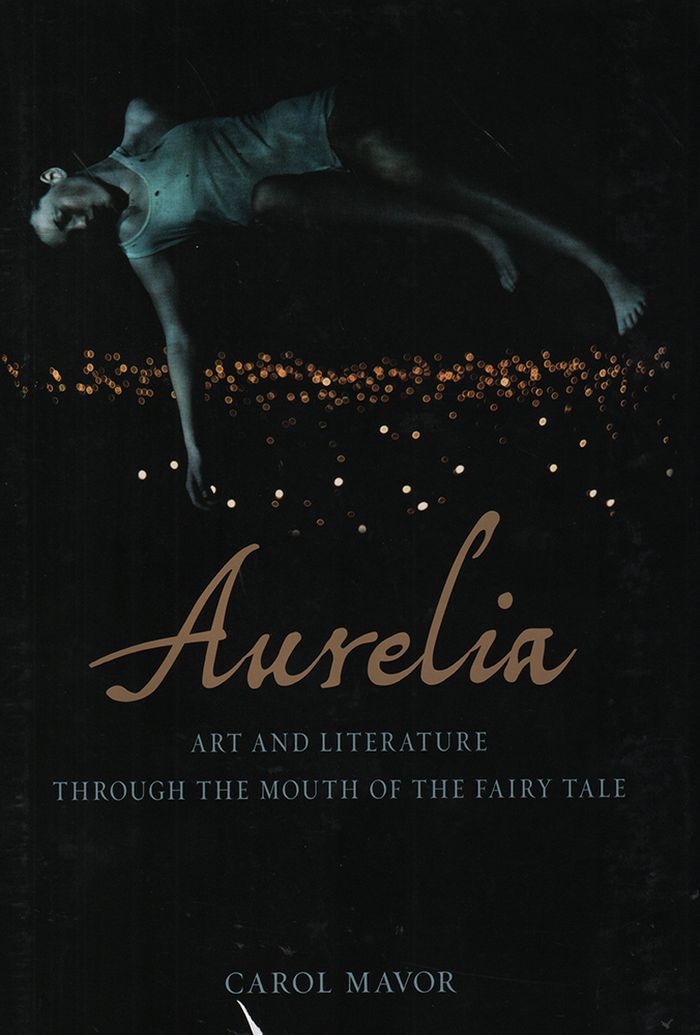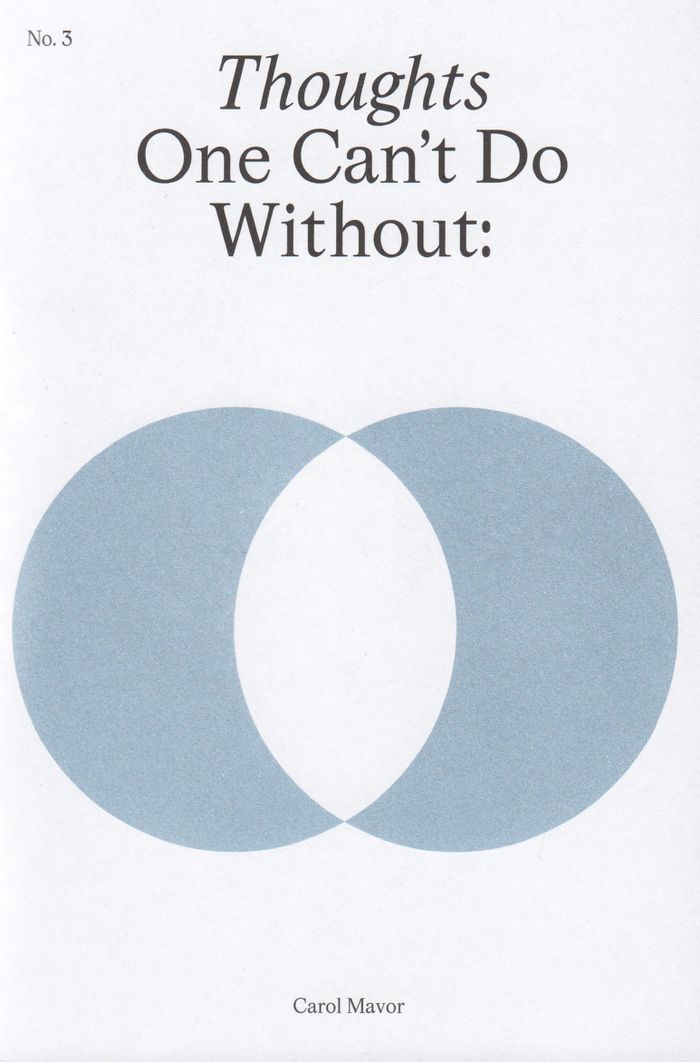$62.00
(disponible en magasin)
Résumé:
Carol Mavor’s first "happy accident" occurred in 1980 when visiting New York’s Serendipity 3, a dessert café favored by Andy Warhol. Mavor’s memory of eating a frozen hot chocolate became food for thought, nurturing accidental discoveries about art and literature. This book’s happy, yet dark, accidents include Anne Frank’s journal, discovered in the Secret Annex after the(...)
Serendipity: The afterlife of the object
Actions:
Prix:
$62.00
(disponible en magasin)
Résumé:
Carol Mavor’s first "happy accident" occurred in 1980 when visiting New York’s Serendipity 3, a dessert café favored by Andy Warhol. Mavor’s memory of eating a frozen hot chocolate became food for thought, nurturing accidental discoveries about art and literature. This book’s happy, yet dark, accidents include Anne Frank’s journal, discovered in the Secret Annex after the Second World War; Emily Dickinson’s poems, scribbled on salvaged envelopes, hidden in a drawer; and "Lolita", rescued from incineration by Nabokov’s wife Véra. Mavor’s writing is dependent on serendipity’s layers of happenstance, rousing feelings of something that she did not exactly know she was looking for until she found it. All history is about loss, and in the case of this book, much of it is tragic—but "Serendipity" also offers the happiness that can be found in unexpected discoveries.
Théorie de l’art
$39.95
(disponible sur commande)
Résumé:
Carol Mavor takes in the many shades and meanings of the colour blue, including those of science, Hinduism, Christianity, Judaism, Slavery, gender, sex, ornithology, the literary past, and film.
Blue mythologies: reflections on a colour
Actions:
Prix:
$39.95
(disponible sur commande)
Résumé:
Carol Mavor takes in the many shades and meanings of the colour blue, including those of science, Hinduism, Christianity, Judaism, Slavery, gender, sex, ornithology, the literary past, and film.
$56.95
(disponible sur commande)
Résumé:
In 'Aurelia', Mavor takes special interest in the fairy tale’s gastronomy, including Alice’s Wonderland cake marked eat me, the sugar of the witch’s house in ‘Hansel and Gretel’ and the more disturbing ingestions of cannibalism, as in the Brothers Grimm’s ‘The Juniper Tree’, where a murdered boy sings through the mouth of a bird: ‘My mother she killed me. My father he ate(...)
Aurelia: art and literature through the mouth of the fairy tale
Actions:
Prix:
$56.95
(disponible sur commande)
Résumé:
In 'Aurelia', Mavor takes special interest in the fairy tale’s gastronomy, including Alice’s Wonderland cake marked eat me, the sugar of the witch’s house in ‘Hansel and Gretel’ and the more disturbing ingestions of cannibalism, as in the Brothers Grimm’s ‘The Juniper Tree’, where a murdered boy sings through the mouth of a bird: ‘My mother she killed me. My father he ate me.’ Moving beyond this, Mavor discovers the fairy-tale realm in more surprising places: the tragic candy-land poetry of the 1950s ‘genius’ child-poet Minou Drouet; the subterranean world of enchantment in the cave paintings of Lascaux; the brown fairies of African American poet Langston Hughes; and Miwa Yanagi’s black-and-white, bloody photograph of the Grandmother and Little Red Riding Hood holding one another in the cut open belly of the wolf, as an allegory of the victims of Hiroshima. Through the lens of the fairy tale Mavor reads the world of literature and art as both magical and political.
Littérature et poésie
$16.50
(disponible sur commande)
Résumé:
A contemplative and lyrical memoir of early childhood, inheritance, and loss. Carol Mavor blends encounters with the works of Piero della Francesca and Brueghel, Goya and Mann, alongside a synesthetic immersion in pre-linguistic memory. It is a scholarly and intimate look at grief and reparation, imagination and forgiveness, told by one of the most interesting and(...)
Thoughts one can't do without 3: A magpie and an envelope
Actions:
Prix:
$16.50
(disponible sur commande)
Résumé:
A contemplative and lyrical memoir of early childhood, inheritance, and loss. Carol Mavor blends encounters with the works of Piero della Francesca and Brueghel, Goya and Mann, alongside a synesthetic immersion in pre-linguistic memory. It is a scholarly and intimate look at grief and reparation, imagination and forgiveness, told by one of the most interesting and genre-defying essayists. Carol Mavor is Professor of Art history and Visual Culture at the University of Manchester.
Théorie/ philosophie



